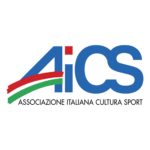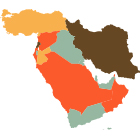Evaluation of Nationwide Cash-For-Work Programme (Lebanon)
Background:
In early 2020, Triangle evaluated a complex, nationwide cash-for-work programme for the Italian Agency for Development Cooperation, Beirut Office (AICS). Under the programme, AICS had contributed funding for five separate Italian NGOs to implement local infrastructure projects through cash-for-work interventions in four governorates of Lebanon.
The final evaluation report found that AICS’ programme built tangible community resilience by providing short-term employment for vulnerable Lebanese and Syrians, while also creating public assets of real value. Triangle’s study drew upon a wide range of key informant interviews and focus group discussions, which were held across all governorates. The quantitative analysis team augmented the qualitative findings through detailed review of the various projects’ data sets. The report concluded with actionable recommendations for making an already excellent humanitarian strategy even more impactful in future interventions.
Triangle’s Assessment:
- Contextual Understanding: The project effectively establishes the socio-economic context in Lebanon, emphasizing the challenges faced by Syrian refugees and Lebanese host communities. It provides robust background information, setting the stage for a comprehensive evaluation.
- Alignment with Objectives: The project’s objectives align with international evaluation criteria (OECD-DAC) and directly relate to the program’s goals. These objectives provide a clear roadmap for assessing relevance, effectiveness, efficiency, impact, and sustainability, ensuring a well-structured evaluation.
- Systematic Inquiry: The research questions are systematically designed to correspond to the OECD-DAC criteria, allowing for a thorough evaluation across various dimensions of the program. These questions cover aspects from the program’s alignment with community needs to its impact and sustainability, ensuring a holistic assessment.
- Adaptive Methodology: The proposed methodology is well-structured and adaptive, catering to the complexity of the evaluation. The inclusion of key informant interviews, focus group discussions, and data analysis ensures a multifaceted approach to data collection and analysis, enhancing the depth of insights.
- Resilience Assessment: Incorporating the CoBRA model for resilience assessment demonstrates a thoughtful approach to capturing the program’s impact comprehensively. This model goes beyond traditional evaluation criteria and examines the multi-dimensional nature of resilience, which is essential in the context of humanitarian programs.
- Data Collection Strategies: The plan for data collection through key informant interviews and focus group discussions is well-considered. The sampling strategies for these methods are defined clearly, ensuring a diverse and representative set of perspectives from beneficiaries and stakeholders.
- Analysis Framework: The analysis framework outlines a systematic approach to categorizing, comparing, contrasting, and triangulating the collected data. This approach ensures that findings will be robust and reliable. The focus on qualitative analysis is appropriate for capturing the nuances of program impact.
- Structured Reporting: The reporting process follows a logical sequence, with clearly defined deliverables at each stage. Stakeholder engagement is incorporated through feedback loops, ensuring transparency and relevance of the final report.
- Quality Assurance: The project demonstrates a commitment to quality assurance by incorporating feedback from stakeholders into the final report. This iterative process enhances the overall quality of the evaluation.
Project:
Qualitative Evaluation of Nationwide Cash-For-Work Programme (Lebanon)

Location: Lebanon
